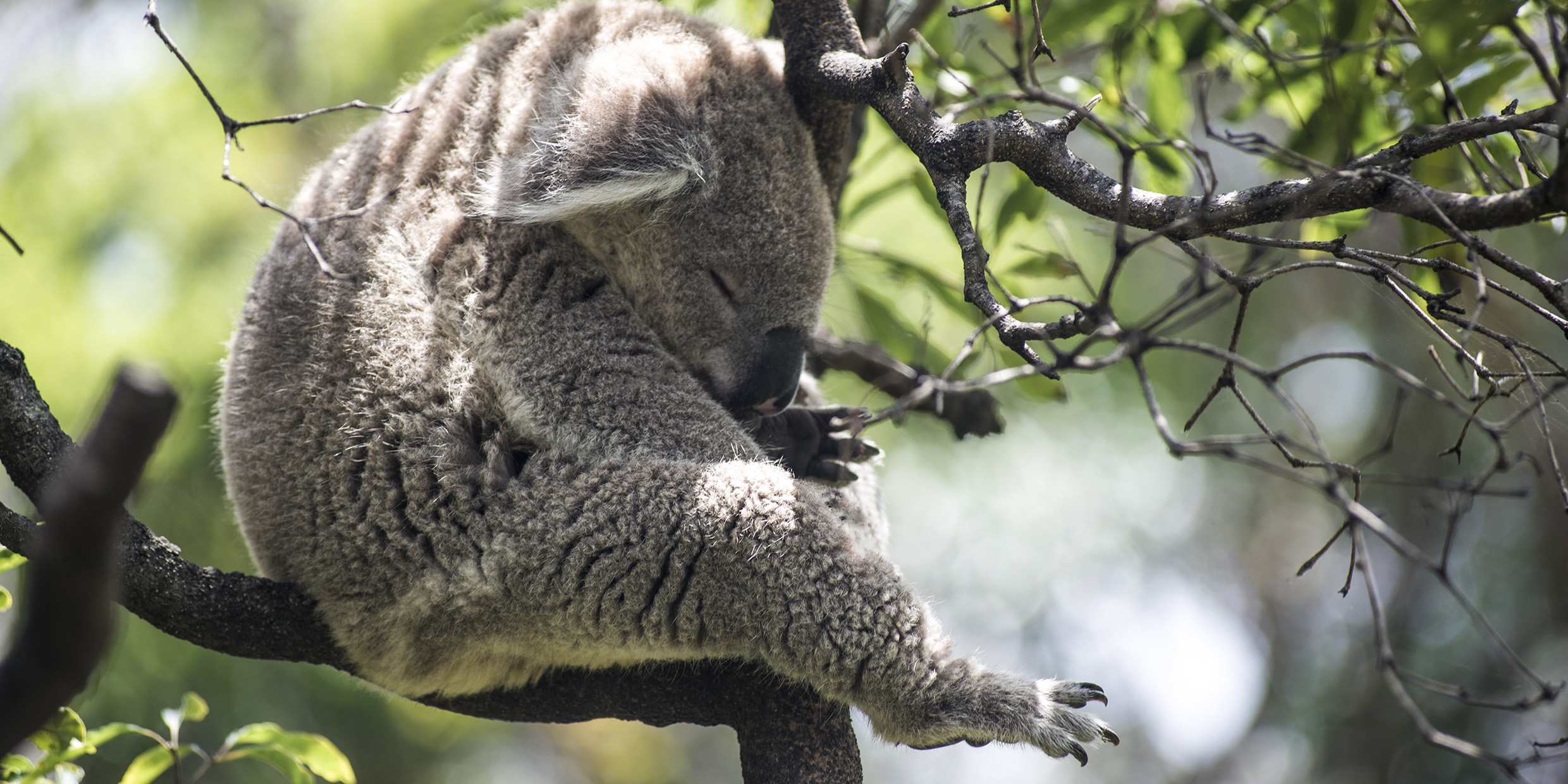Originally published 4 January 1993
News from Down Under: Koalas are under siege.
The cuddly symbol of Australia, everybody’s favorite animal, is a rare and vulnerable species in the state of New South Wales, and is holding its own only in the state of Victoria. Unless environmentalists act to save the koala, it could follow the moa and the dodo into oblivion.
The koala’s plight could be just the thing wildlife advocacy groups have been waiting for. It is hard to generate much emotion about the endangered status of snail darters and spotted owls. But koalas! Those lovable teddy bears of the eucalypts. Those sweet-tempered, saucer-eyed, snugly marsupials. Koalas are animals we care about.
“Save the koala” has a ring to it. It makes a more effective rallying call than “Save Barbour’s map turtle.” I can see the plaintive eyes of baby koalas peering out from their mamas’ pouches on posters, t‑shirts, coffee mugs, and letterheads of wildlife organizations. It’s a hard-hearted person who will not feel sad if the koala becomes extinct.
In his wonderful new book The Diversity of Life, Harvard University’s Edward O. Wilson gives reasons why we should care about the extinction of species (I have taken the liberty of naming his arguments):
- The Undiscovered Riches argument. Says Wilson: “A rare beetle sitting on an orchid in a remote valley of the Andes might secrete a substance that cures pancreatic cancer.”
Well, yes it might, but that won’t slow down the lumber barons or mining interests who wish to ravage that Andean valley. Besides, say environmental despoilers, chemists will soon be able to synthesize any drug we want from chemicals already on laboratory shelves.
- The Mother Earth argument. The diversity of life helps maintain the soils we plant, the air we breathe, and the climate. The environment is a tangled web, and we cannot change one part without effecting every other part. Says Wilson: “To disregard the diversity of life is to risk catapulting ourselves into an alien environment.”
To which despoilers will respond: Technological development is the most powerful force at work in the world today, more powerful even than the forces of nature; if necessary, we will learn how to farm with artificial fertilizers, adjust the composition of the atmosphere, and control the weather.
Wilson is a realist. He knows that the Undiscovered Riches and Mother Earth arguments will not preserve biodiversity if there is a quick buck to be made by eliminating species. So he offers:
- The We Are the Earth argument. Humanity is a part of nature, a species that evolved among other species; the more closely we identify ourselves with the rest of life, the better we will know who we are and what we want to be.
If the Undiscovered Riches and Mother Earth arguments cannot forestall the extinction of species, then the We Are the Earth argument is hopeless. Wilson is talking about an ethical decision, based on a view of what it means to be human. It all comes down to a choice between life — including snail darters and spotted owls — and money.
It so happens that I agree with Wilson’s ethic, which he calls biophilia, or love of life. But I don’t think for a minute that his three arguments for preserving biodiversity will save anything. As the Mexican truck driver who shot one of the last two imperial woodpeckers, largest of all the world’s woodpeckers, said, “It was a great piece of meat.”
For most of our species, a bird in the mouth is worth two in the bush.
So what should biophilists do to advance their ethical cause?
Well, we can use the koala.
Koala numbers took a nosedive in the early part of the 20th century when millions of the animals were shot for their pelts. They were driven to extinction in the state of South Australia. Today there may be less than 100,000 koalas in all of Australia, a tiny fraction of their original numbers. Human settlement has destroyed 80 percent of their original habitat.
Koalas are particularly vulnerable in their choice of diet. They rely almost exclusively upon the leaves of eucalyptus trees. Trees that grow in poor soil produce toxins and foul-tastes in their leaves as a defense against koalas. Trees that grow in good soil are likely to be chopped down by farmers. Either way, the koala loses.
The koala’s problems are our gain. Our fondness for the furry little beast is a symptom of our biophilia, which Wilson believes is innate, a part of our evolutionary inheritance from a time when human existence was bound up with the fabric of all life. If he is right — if indeed we are all biophilists at heart — then even the greediest among us will feel a twinge of guilt at the koala’s plight.
Guilt might be the only thing that will save the koala — and other endangered species.



